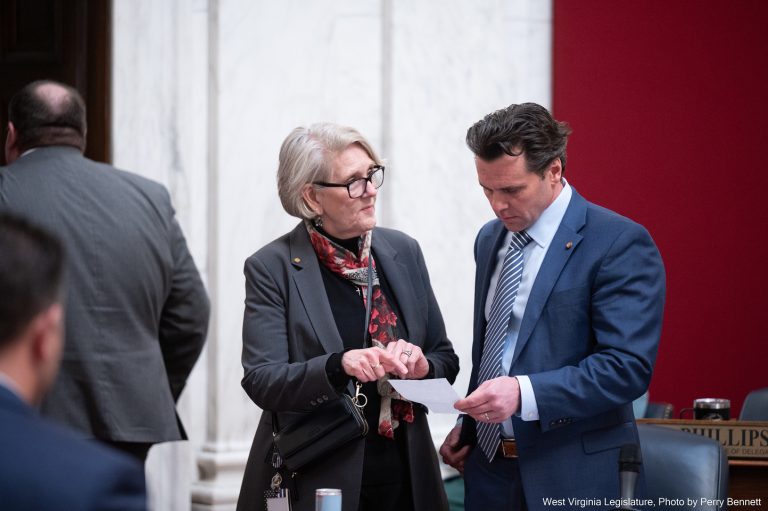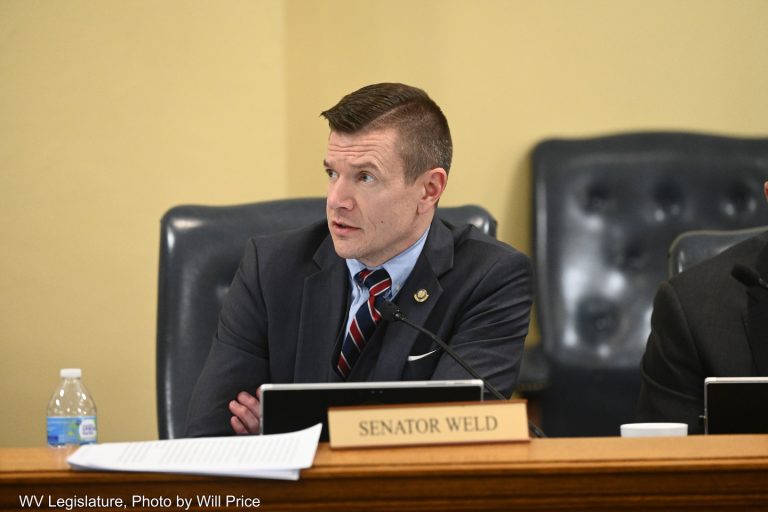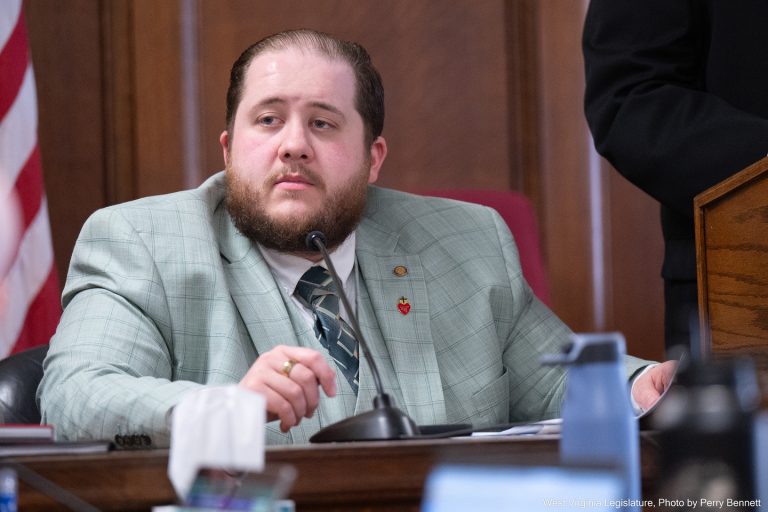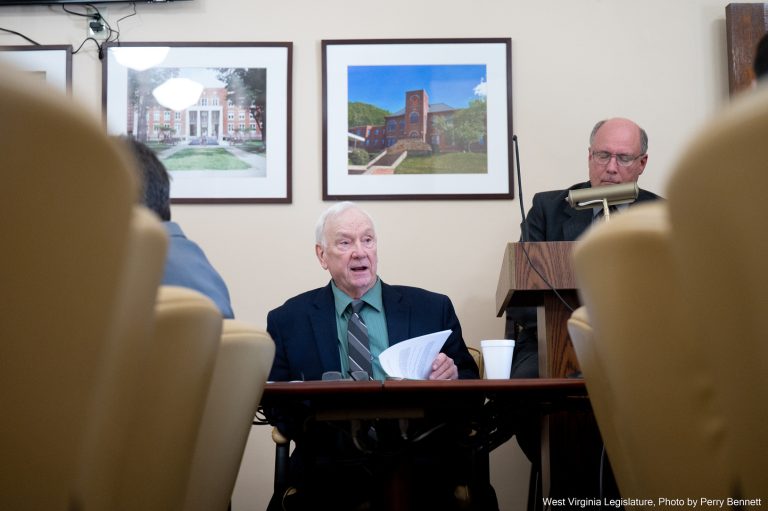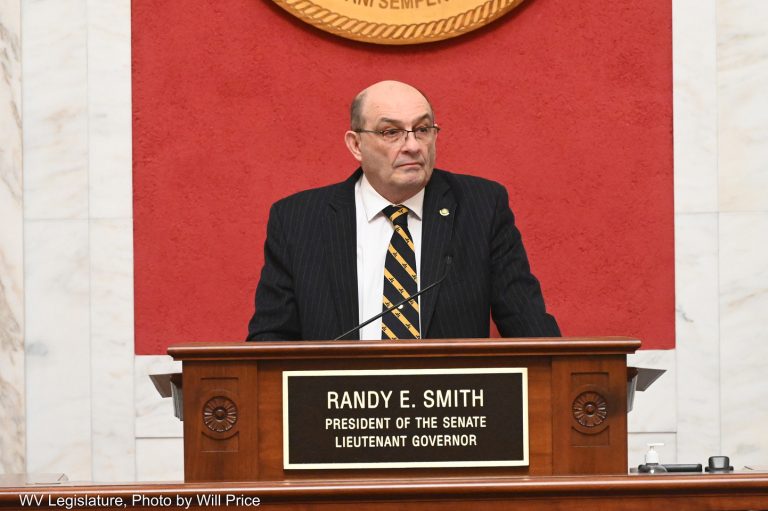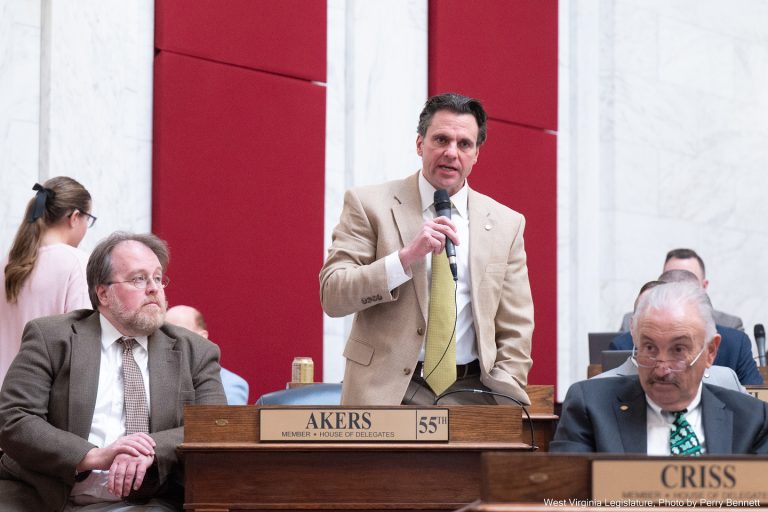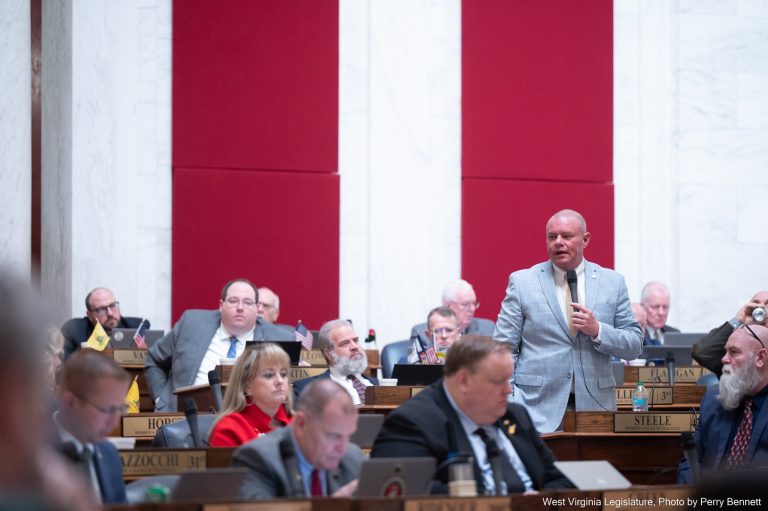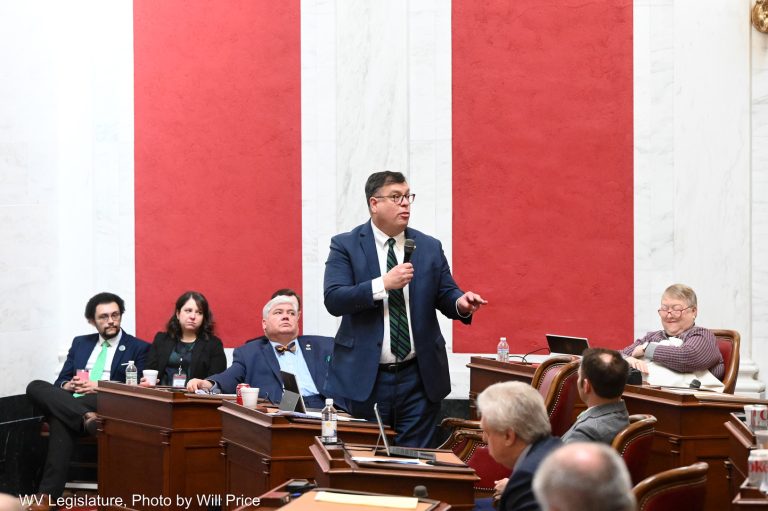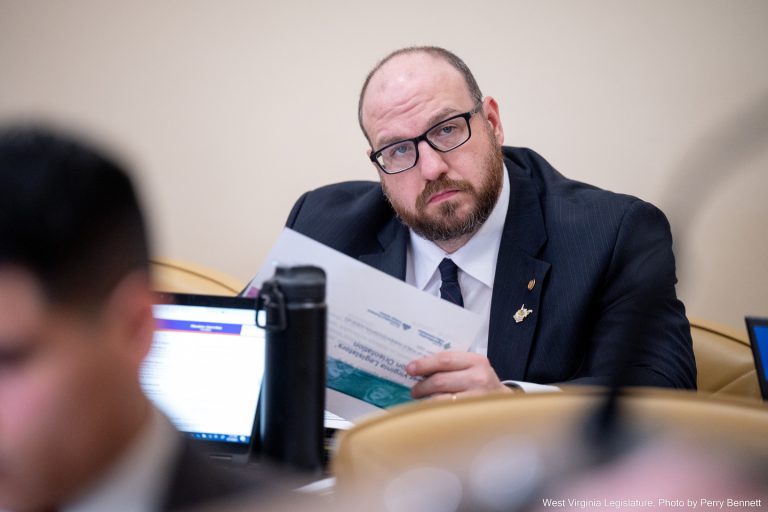In today’s House floor session, five bills passed to the Senate, and two bills were amended.
House Bill 2117 amends absentee voting. The bill requires ballots to be received by 7:30 p.m. on the election day. Currently, the absentee vote must be postmarked by election day and arrive by canvassing. The bill also rolled in another bill to limit the number of absentee voting applications an individual can hand out to a group of voters without the voters specifically requesting them to provide 10 applications.
House Bill 2441 disqualifies individuals who fail a drug test while working in a safety-sensitive position from claiming unemployment.
House Bill 2444 allows the Lottery Commission to examine financial records only related to limited video lottery (LVL) when reviewing the LVL permittee’s financial records.
House Bill 2653 updates the outdated code of the West Virginia Law Institute.
House Bill 2709 allows voters who have moved within the county to vote in their new precinct without having to cast a provisional ballot. The individual must provide proof of address change, such as a license or utility bill.
Senate Bill 456 defines sex, male, and female in the West Virginia code. Two amendments were offered. The first amendment states that nothing in the article authorizes any person other than a healthcare provider to visually or physically examine a child to verify the biological sex of the child without the consent of the child’s parents. This amendment was adopted. The second amendment was similar and added that nothing in the section allowed an inspection of the genitalia of an adult or a child. This amendment was rejected.
House Bill 2129 creates the Parents Bill of Rights. One amendment was offered and adopted. The amendment allows an individual to bring an action for injunctive relief against someone who violates this article.
Action on House Bill 2054 was postponed one day.
Bills introduced today can be found here.
The House is adjourned until 11 a.m. tomorrow, March 7, 2025.
Committee Meetings, Today March 6
- The Appropriations Subcommittee will meet at 1 p.m. in Room 460.
- The Subcommittee on Agriculture, Commerce, and Tourism will meet at 1 p.m. in Room 215E.
- The Committee on Education will meet at 1 p.m. in Room 432M.
- The Subcommittee on Government Administration will meet at 2 p.m. in Room 215E
- The Subcommittee on Energy and Public Works will meet at 3 p.m. in Room 410.
- The Committee on Health and Human Resources will meet at 3:30 p.m. in Room 215E.
- The Subcommittee on Environment, Infrastructure, and Technology will meet immediately after EPW in Room 410.
Committee Meetings, Tomorrow March 7
- The Appropriations Subcommittee will meet at 9 a.m. in Room 460.
- The Judiciary Committee will meet at 9 a.m. in Room 410.
- The Subcommittee on Courts will meet at 9:30 a.m. in Room 410.
- The Subcommittee on Legal Services will meet at 9:45 a.m. in Room 410.
- The Subcommittee on Homeland Security will meet at 10 a.m. in Room 410.
- The Committee on Government Organization will meet at 1 p.m. in Room 215E.
- The Subcommittee on Higher Education will meet at 1 p.m. in Room 432M.
- The Subcommittee on Educational Choice will meet at 2 p.m. in Room 432M.


